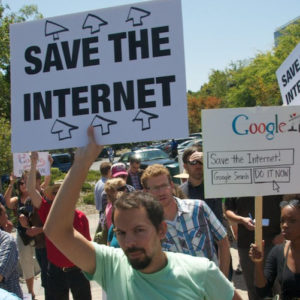A big priority for progressives and, hence, the Biden administration is reinstatement of Obama-era net neutrality regulations. The Federal Communications Commiss
To that end, the Biden administration recently nominated acting Chair Jessica Rosenworcel to serve for a full term as Chair of the FCC and Gigi Sohn to be added as a Commissioner, which would break the 2-2 partisan stalemate. If confirmed by the U.S. Senate, those Democrats will provide the majority needed to implement Biden’s telecommunications policy agenda, and that could be bad news for consumers.
Net neutrality regulations were first put in place by the Obama Administration in 2015, despite the fact that none of the offending practices (
This harmful regulatory environment spurred repeal of net neutrality policies during the Trump Administration, under the leadership of FCC Chairman Ajit Pai in 2017. Outraged net neutrality advocates flooded the media with warnings that the rollback would “destroy the Internet” and put free speech online at risk. Of course, none of these dire predictions came true. Internet service providers aren’t blocking legal content and the edge providers, like Netflix and Google, who worried about being slowed down or having to pay for paid prioritization are doing just fine, thank you very much.
With increased ability to make the most of their networks, broadband investment flourished after the repeal of net neutrality regulations. A 2018 report showed that U.S. broadband companies invested somewhere between $72 billion and $74 billion in network infrastructure in 2017, an increase of at least $1.4 billion from the year before when net neutrality regulations were still in place. It’s likely that other factors also influenced capital investment decisions, but the change from a heavy-handed restrictive regulatory regime to a lighter touch approach can’t be discounted.
Since then, COVID-related quarantine demonstrated all too clearly the consumer benefits of less regulation spurring increased investment. While Europe, with its utility-style regulation of broadband networks actually had to beg edge-providers like Netflix, Amazon, Apple and YouTube to degrade the quality of their content or, in the case of Disney Plus, delay release of their streaming channel for fear of the network not having sufficient capacity to support demand, the lightly-regulated U.S. broadband networks held up beautifully in the face of the increased stress of Americans working, learning and binge-watching at home.
Politically, the Senate will have to hustle to confirm Joe Biden’s two nominees to the FCC. The administration’s recent nominations are the latest ever, with only Richard Nixon and Jimmy Carter coming close by waiting until September of their first years in office to nominate. Failing to confirm Rosenworcel and Sohn by the end of December would result in a 2-1 Republican majority in the new year.
But even if the Biden administration gets its Democrat majority at the FCC installed, there’s no need to perform the regulatory net neutrality experiment again. We’re already run it and seen the result in slumping investment and poorer consumer outcomes. Europe’s heavily regulated approach is further proof that the heavy hand of the FCC doesn’t produce good outcomes for broadband users. In the political rush to prevent Commissioner vacancies, Senators shouldn’t lose track of the real dangers Biden’s net neutrality regulations could do to Americans who rely, now more than ever, on working, learning, and being entertained from home.

